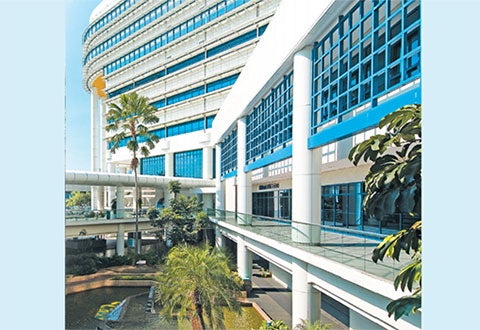
To improve the lives and health of future generations, clinician researchers and scientists at KK Women’s and Children’s Hospital (KKH) are pioneering innovative ways to advance women’s and children’s health outcomes.
Supported by $7 million in centre grants from the National Medical Research Council, researchers from KKH, in collaboration with National Dental Centre Singapore, SingHealth Polyclinics and National Healthcare Group Polyclinics, are exploring key areas which impact women’s and children’s health and wellbeing, including auto-immunology, childbirth and persistent pain, genetics, metabolic syndromes and endometriosis.
Key research areas:
- Building Singapore’s First Research Ecosystem for Metabolic Health in Women and Children
- Innovating to Create Better Patient Experiences
- Combating the Risk of Diabetes in Obese Children
Investing in integrative translational research
Leading the charge is a new Integrative Translational Research Programme which aims to enhance KKH’s core research capabilities to better pursue healthcare applications with significant impact and benefit to the healthcare system and population.
“In seeking answers to clinically relevant questions of benefit to women’s and children’s health, we are collaborating with fellow healthcare institutions, academic research institutions and medtech industries to launch transdisciplinary streams of enquiry into research areas including the genetics of childhood disorders, obstetric anaesthesia and pain management, stem cells and biomarkers and molecular signatures, among many others,” says Associate Professor Sng Ban Leong, Director, KK Research Centre, and Head and Senior Consultant, Department of Women’s Anaesthesia, KKH.

“The programme will enable us to achieve greater synergy in translational research by facilitating greater centralisation and coordination across KKH’s various research capabilities, resources and platforms. It will also provide a robust structural framework for the integration of research, education and mentorship of more clinician scientists,” says A/Prof Sng, who also leads the Integrative Translational Research Programme.
Investigating childhood-onset rheumatic disorders
One such research bearing fruit is the discovery of a potential dual regulatory mechanism responsible for inactive disease in childhood-onset systemic lupus erythematosus (SLE), by Dr Yeo Joo Guan, Associate Consultant, Division of Medicine, KKH. The research was done in collaboration with Associate Professor Thaschawee Arkachaisri, Head and Senior Consultant, Rheumatology & Immunology Service and with mentorship from Professor Salvatore Albani, Senior Consultant and Senior Clinician Scientist, Division of Medicine, KKH.
“Childhood-onset SLE is the most severe type of systemic vasculitides – which is the most common group of rheumatic disorders in Singapore. It is associated with renal, neurological and haematological sequelae and significant morbidity,” says Dr Yeo.
“In patients with inactive lupus disease, a unique immune signature was found with an increase in both the regulatory B and regulatory T follicular cells. Further, the regulatory B cell population express a unique combination of surface markers – which we are currently examining for the dual translational potential to be used as a predictor of clinical fate and a future therapeutic target in lupus.”
Driving safer and more effective care
Under the new Integrative Translational Research Programme, KKH also welcomes three new core research programmes in translational omics and biomarkers, medical technology, and epidemiology and health services research. These will join the existing genomics, translational immunology and bioimaging core research platforms in driving more effective, safer and patient-centred care through personalised medicine.
“These new research cores will enable us to better investigate diseases at the molecular and metabolic level, personalise patient management, and enhance healthcare efficiency and safety through the integration of medical technology into clinical pathways.
We are also pursuing epidemiology and health services research to optimise perinatal care through health technology assessment, identifying health specific outcomes, and provide a cost-effective healthcare system," adds A/Prof Sng.

English
Innovating for the future_Special Delivery Vol 66 Issue 3.pdf














 Get it on Google Play
Get it on Google Play